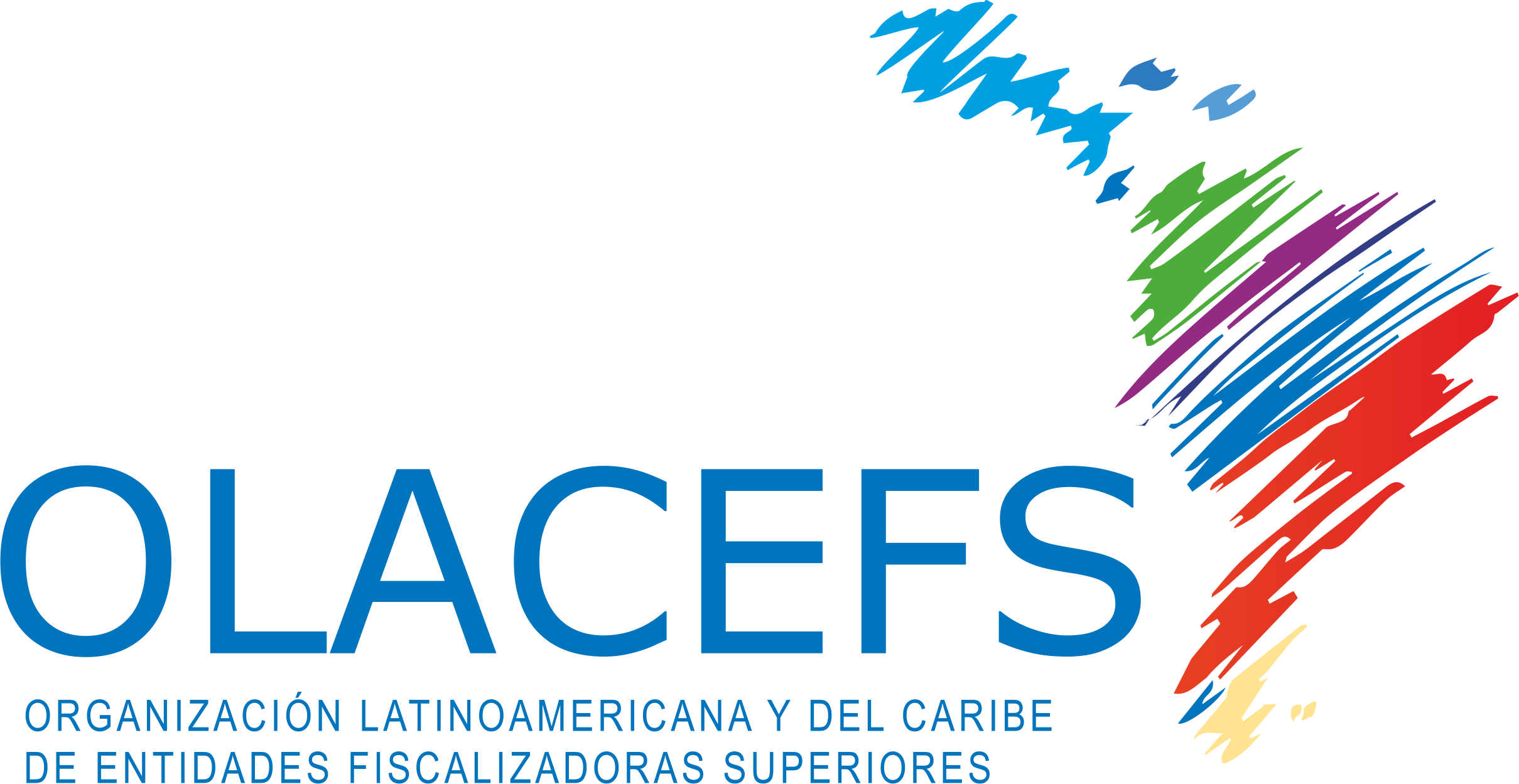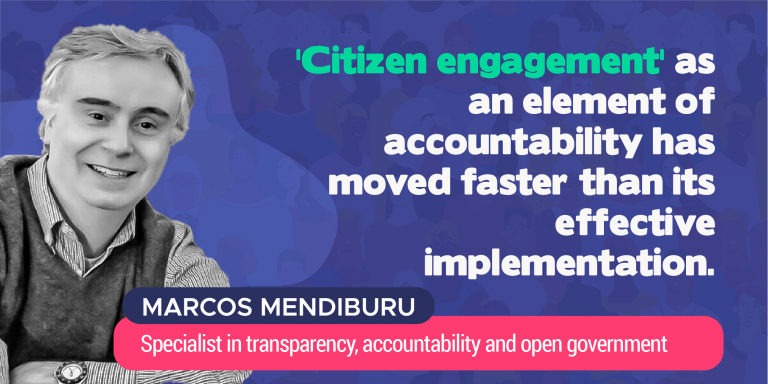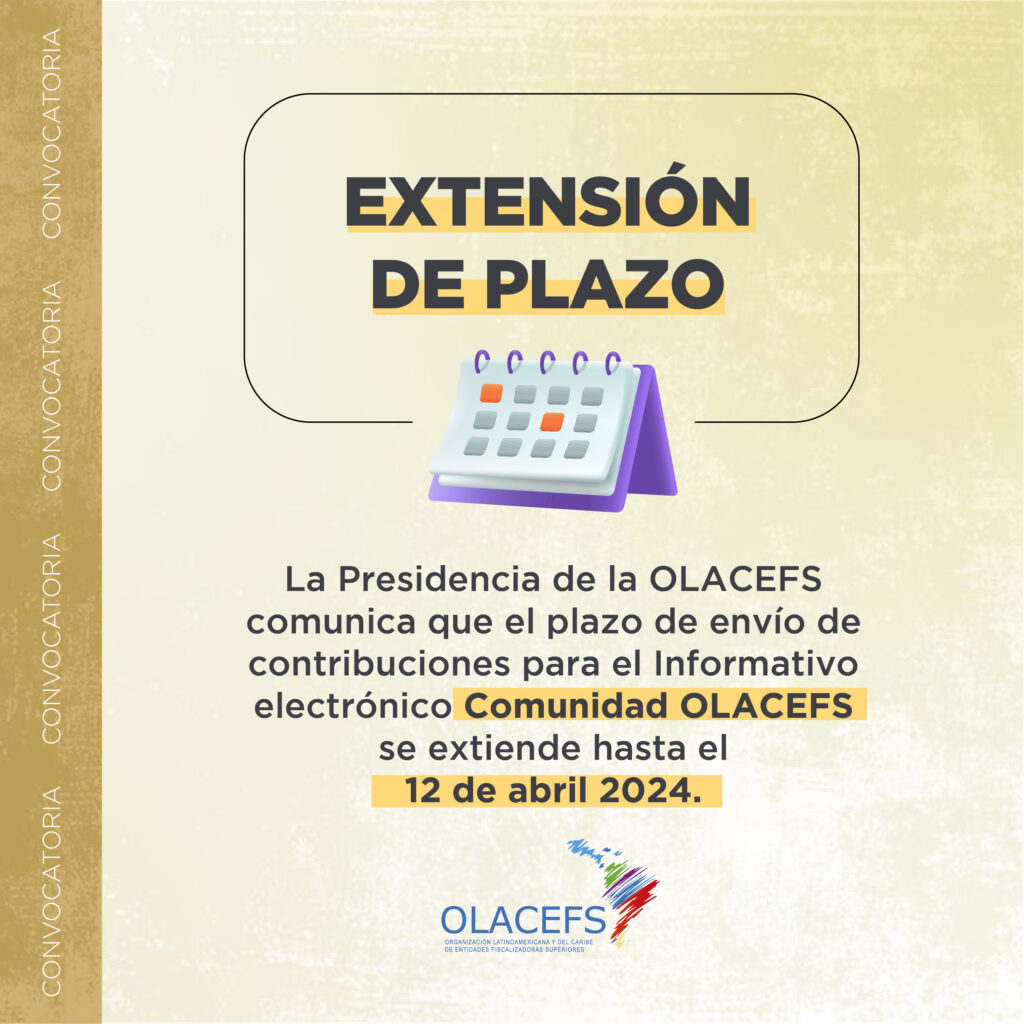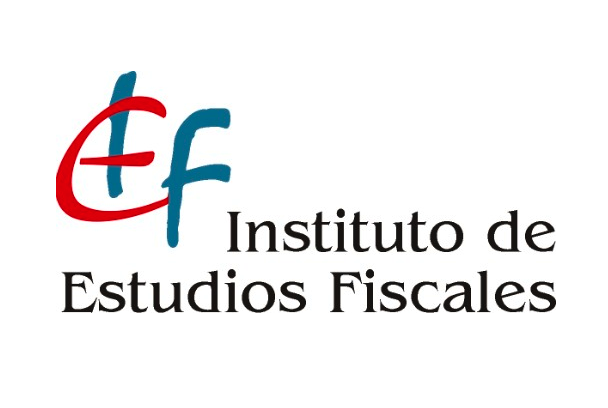Marcos Mendiburu
Specialist in transparency, accountability and open government
In the current situation generated by the COVID-19 pandemic, citizens have highlighted the importance of external auditing in various countries in the region. By way of illustration, in Argentina, the NGO Poder Ciudadano (chapter of Transparency International) demanded – albeit unsuccessfully – of the General Audit Office of the Nation of Argentina (AGN), that the procurement made to face the pandemic be incorporated into its current audit plan in accordance with decrees and provisions issued by the Executive Branch, while establishing a purchasing observatory associated with COVID-19. Meanwhile, the Fundación Observatorio Fiscal de Chile developed a microsite on purchases associated with COVID-19. And the meeting of the Consejo Consultivo de Asociaciones de la Sociedad Civil (COSOC), organized – for the first time in a virtual way – by the General Comptroller of the Republic of Chile last April, discussed the role of the Comptroller in the context of the pandemic. In Brazil, the Federal Court of Accounts (TCU) and Transparency International-Brazil published a guide on recommendations for emergency procurement for COVID-19.
Despite the interest of civil society (organized or not) in collaborating with Supreme Audit Institutions (SAIs), there is still an important road ahead in the region. In my recent analysis regarding the panorama of citizen participation in external auditing, I conclude that the incorporation of the term “citizen participation,” as an element for auditing, has advanced faster than its effective implementation.
More than two decades after the first reference to citizen participation in a declaration of the OLACEFS General Assembly, questions remain: how and to what extent has progress been made in promoting citizen participation by SAIs? and what are the results to date? In other words, what is the scope and depth of said citizen participation in the audit processes.
The implementation of citizen participation practices varies significantly among SAIs. In many cases, it is still limited to a narrow exercise – generally to a single type of practice and/or promoting participation during a specific phase of the audit cycle. Furthermore, most SAIs lack a true strategy – with specific objectives, instruments and result indicators – on citizen participation linked to broader organizational and learning processes within the institution.
With respect to the scope of citizen participation in auditing regarding the audit cycle, with exceptions, there is a significant deficit in practices and experiences of participation in SAIs during the execution and follow-up phases of the findings and recommendations issued by the SAIs. This limitation is significant because it is related to the corrective actions of the institutions in response to the audit findings. Regarding the depth of citizen engagement in the audit, there is an emphasis on the use of complaint channels – although there is a lack of evaluation of their effectiveness – and the dissemination of audit reports, followed by citizen awareness or training. However, according to the maturity model on citizen participation proposed by the Declaration of the OLACEFS General Assembly of Punta Cana in 2016, the practice of citizen complaints is associated with the basic level. Furthermore, it is questionable to consider the dissemination of audit reports as a participation practice, given the passive role of citizens and their minimal involvement. On the other hand, SAIs tend to promote practices of a consultative nature rather than practices of a collaborative nature, unlike other innovative spaces for participation such as, for example, the Alliance for Open Government.
Finally, the number of SAIs employing new information and communication technologies to strengthen participation and collaboration with citizens is limited, beyond the use of online complaint reporting channels and social networks to disseminate information. The potential of these tools remains unexploited.
However, the follow-up report to the Punta Cana Declaration of the OLACEFS General Assembly of 2016, recently published by the OLACEFS Citizen Participation Commission (CPC), demonstrates opportunities for progress on this issue. Of the 18 member SAIs that responded to the questionnaire, more than half of the SAIs reported that citizen participation in their institution is associated with the basic or low level of the maturity model, while 67% (i.e., 12 SAIs) reported that they have not carried out promotion activities within the institution on the maturity model and its four levels of citizen participation.
In conclusion, documentation, research and learning are necessary to stimulate innovation and strengthen existing participation practices. The health and human crisis generated by the pandemic should not relegate the role of society in fiscal control. On the contrary, more than ever, the centrality of participation to achieve effective auditing that contributes to improving the lives of citizens in the region is evident.
The working document “Citizen Participation and Supreme Audit Institutions in Latin America: progress or impasse?” examines good practices and raises questions and areas of opportunity to strengthen participation in audit processes. The International Seminar on this topic, which will be held from September 2-4, will provide an opportunity to continue deepening the regional debate on the topic.
About the Author
Marcos Mendiburu has a Master in Public and International Affairs from the University of Pittsburgh. Consultant and specialist in transparency, accountability and open government. He has worked with various civil organizations, foundations, governments and international bodies. He has various publications. In 2018 and 2019, he coordinated the training program for public servants on citizen participation in auditing, jointly offered by the Citizen Participation Commission of the OLACEFS Civil Association for Equality and Justice (ACIJ) of Argentina. Previously, Marcos worked for 16 years at the World Bank, where he served as a Senior Governance Specialist. He recently published the study Citizen participation in Supreme Audit Institutions in Latin America: Progress or Impasse?





